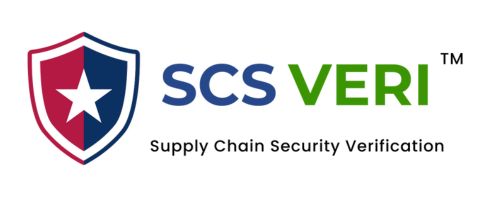Frequently Asked Questions
Got Questions About CTPAT? We’ve Got You Covered
RSJ Inspection Service Limited is your trusted partner for navigating the CTPAT audit process. As an experienced third-party inspection and audit company with a strong presence in key Asian manufacturing hubs like India, China, Bangladesh, Pakistan, and Vietnam, we provide comprehensive CTPAT audit services designed to assess your security measures, identify vulnerabilities, and guide you towards compliance with CTPAT requirements. Partner with RSJ to enhance your supply chain security, meet CTPAT security requirements, and gain a competitive edge.

Frequently Asked Questions
CTPAT (Customs-Trade Partnership Against Terrorism) is a voluntary supply chain security program initiated by U.S. Customs and Border Protection (CBP). Its primary objective is to enhance international supply chain and border security by collaborating with the trade community to identify and mitigate security risks associated with global trade.
CTPAT is crucial as it significantly improves supply chain security, leads to fewer delays and expedited processing at customs, enhances a company’s reputation as a trusted trade partner, and effectively reduces various supply chain risks, offering a competitive advantage.
Businesses involved in the international movement of goods into the U.S. should strongly consider CTPAT certification. This includes, but is not limited to, importers, exporters, manufacturers, various types of carriers, customs brokers, and third-party logistics providers.
The 5-Step Risk Assessment Process is a comprehensive methodology recommended by CBP for CTPAT partners. It generally involves:
1. Mapping cargo/data flow and identifying all business partners
2. Conducting a thorough threat assessment
3. Conducting a detailed vulnerability assessment
4. Preparing a written action plan to address findings
5. Documenting the entire risk assessment procedure and reviewing it periodically to ensure ongoing effectiveness.
Yes, RSJ specializes in developing and delivering tailored CTPAT training programs. These programs are designed to ensure that your internal team and external partners (suppliers) fully understand and can effectively implement the necessary security measures. While not bundled with audits, this is available as a crucial additional awareness-building service.
Best practices strongly recommend conducting internal CTPAT audits at least annually. Additionally, an audit should be performed whenever significant operational changes occur within your supply chain to ensure continued compliance and security. CBP also expects partners to perform an annual risk assessment.
Absolutely. RSJ provides comprehensive follow-up support, which includes a thorough review of your Corrective Action Plan (CAP) and expert guidance for the effective implementation of all recommended improvements, ensuring long-term compliance and enhanced security.
To facilitate a smooth audit, you should have various documents readily available. These typically include, but are not limited to, your facility layout, access control logs, training records, risk assessment reports, supplier screening records, and seal control registers.
Yes, the detailed audit report provided by RSJ serves as a valuable document. It effectively demonstrates your facility’s robust alignment with the CTPAT Minimum Security Criteria (MSC) expectations, which can significantly influence buyers during their sourcing and decision-making processes.
Yes, our audit team comprises local experts who are proficient in regional languages as well as English. This ensures clear communication, cultural understanding, and efficient information gathering during the audit process in countries like India, Bangladesh, Vietnam, and China.
The typical duration of an audit varies depending on the size and complexity of your facility and the scope of the audit. Generally, an RSJ CTPAT audit takes between 1 to 2 working days.
RSJ actively helps companies navigate and comply with the updated CTPAT criteria regarding forced labor. We assist in understanding and implementing robust due diligence processes to effectively identify, mitigate, and remediate any forced labor risks present within their supply chains.
If critical security weaknesses are identified, RSJ will provide a detailed report meticulously outlining these vulnerabilities. Crucially, this report will be accompanied by actionable recommendations and guidance, enabling you to promptly and effectively address these critical issues and strengthen your security posture.
Ready to Get Started ?
Connect with us today for reliable, third-party audit solutions tailored to CTPAT and international
security standards.

